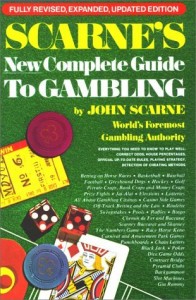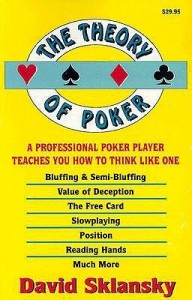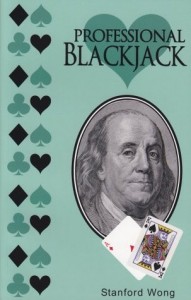And we’re back! As you know, last time [please place a link to it in the anchor text]we discussed a couple of novels (one fictional, one based on a true story and one that I wish wasn’t fictional because realistically I have a bigger chance of being a Bond girl than I have of ever meeting Daniel Craig) that were centred around casinos. But if you’re a gambler that wants to get some tips on how to improve his or her blackjack odds, “Bringing Down The House” isn’t exactly going to help you, unless you know a bunch of MIT students willing to count cards for you. So, what books should you read instead? I’ve got a handful of suggestions for you all! I can’t guarantee that any of these is going to turn you into the Sherlock Holmes of gambling, but they’re certainly not a bad place to start at all!
Scarne’s New Complete Guide To Gambling
John Scarne
 Amazon / Goodreads
Amazon / Goodreads
John Scarne is unanimously considered to be THE casino expert. Despite being born more than a century ago, his teachings about magic tricks and gambling are still revered by many who read the dozens of books he’s written on the subjects to this very day. Scarne has worked as a consultant at dozens of casinos throughout his life, so it’s fair to say that if there’s anyone who knows casino inside and out, it’s him. So when he puts his name on a book and calls it a “complete guide to gambling”, you better believe it! “Scarne’s New Complete Guide To Gambling” is the best-selling gambling book of all time, and has been in constant reprints since the 60s, so that should tell you something! It covers everything and anything that you could ever want to know about casino games, from strategies to stuff like odds and house percentages. I definitely highly recommend it as your starting point!
Professional Blackjack
Stanford Wong
It has happened to all of us – we’ve watched “The Hangover”, saw the scene in which Zach Galifianakis wins hundreds of thousands by counting cards in a Vegas casino and decided that this was the coolest thing a fat guy has ever done in a movie since Porkins tragically sacrificed his life in the battle for the Death Star. There’s just one, tiny problem – we’re not autistic like Raymond Babbitt and don’t really have access to a team of MIT students willing to bend the rules for our benefit. So, what to do? Should we just give up on our card-counting dreams? Don’t you dare do that, my friend! “Professioal Blackjack” has you covered! Despite what popular culture has taught us, card counting isn’t limited to geniuses – it’s a skill that, like any other, can be learned and perfected through practice and mental discipline. According to Stanford Wong, with enough training you’ll be able to count cards with your eyes closed, and while you won’t always win (it took quite a bit of effort to pull off the big winnings in “Bringing Down The House”, after all), you’ll definitely maximize your chances. This book won’t magically turn you into a card counter, but it’s by far the best resource to set you on the path to becoming one.
The Theory of Poker
David Sklansky
 Amazon / Goodreads
Amazon / Goodreads
Poker is an easy game, right? You do what you can with the hand that you’ve been dealt, and if it’s not good enough you just kinda bluff it out, right? After all, poker’s no rocket science, right? If you think like that, you’re probably not very good at poker. I mean, don’t get me wrong, I’m not the best at it either (I’m pretty much only good enough to hold my own in strip poker – it’s an essential survival skill when you go to as many parties as I do), but at least I know about the Fundamental Theorem of Poker… Mostly thanks to this book. “The Theory of Poker” is just as fancy as it sounds – it explains, in relatively simple terms, the mechanics and mathematics behind the world’s most popular card game, giving you hints and tips on how to weaponize your knowledge and use it to win the various variations of the game, such as 5-card poker, Texas Hold’em or their less popular brothers. “The Theory of Poker” doesn’t just talk about mathematics and probability, though, as, let’s be honest – that’s not all that wins a game of poker. It also gives you advice on bluffing, deception, heads-up play, etc. Amazon calls it “the best book ever written on poker”, and honestly, after reading it from cover to cover, and I rather inclined to agree!

